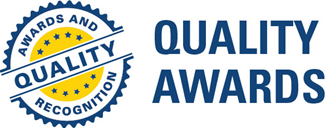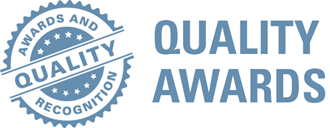

 Quality Awards
Quality Awards

On a weekly basis, our Program Director has “open door” office hours set aside for residents to stop by without a scheduled appointment. This permits residents to meet informally with the Program Director to address any issues, questions, or concerns on an impromptu and less formal basis. It is also a chance to reflect and enhance one's well-being.
Close
Training in dermatopathology is extensive at St. Luke’s, and this conference is designed to systematically work through a year-long syllabus provided to each resident at the beginning of the academic year. Sessions utilize both digital photography and glass slides. Residents are expected to read any assigned textbook material prior to meeting in person at-the-scope and will be given the opportunity to review slides generated from all clinic sites. Residents review their personal slides ahead of time and come prepared to describe the findings and differential diagnoses to the group.
Close
This quality assurance and improvement initiative is held every week and reviews the following:
Close
Faculty members are responsible for presenting a “round robin, Kodachrome-format” lecture to all rotating residents. Typically, this review occurs around noon on Mondays. Clinical images are the focus. The primary goal of the review is to present clinical slides of dermatologic disorders to enhance the ability of each resident to generate a differential diagnosis and discuss potential treatments.
Close
On a monthly basis, our Program Director meets with all of the residents (usually during a formal Didactics session) for a “State of the Residency” meeting. This time is dedicated to addressing any educational or operational strengths and/or weaknesses within the Residency in Dermatology program and offers the residents an opportunity to optimize resident curriculum, improve communication with team members, and examine systems-based program issues.
Close
These monthly seminars focus on teaching clinical diagnostics, introducing new interventions, and gaining expert “clinical pearls” for the management of specific dermatological conditions. The series has been designed to (1) provide detailed exposure to very specific dermatology topics (such as nail-specific procedures), (2) help address any deficiencies in the residents’ individual skill sets, and (3) provide different multi-disciplinary approaches to common problems.
Examples of diagnostic-focused workshops include patch testing (Allergy), detecting clinical signs and symptoms of systemic disease (Internal Medicine and Rheumatology), the use of immunodiagnostics (Immunology), and optimal selection of imaging studies in dermatology (Radiology). Specific management and therapeutic interventions will include instruction on phototherapy, photo-allergy testing (Allergy), cosmetic and reconstructive procedures such as hair transplantation, invasive vein therapies, liposuction, laser surgery (Plastic and Reconstructive Surgery), dermabrasion, tissue augmentation, etc. Other topics that may be addressed include: compounding and use of topical agents (Pharmacy), use of immunosuppressive agents (Oncology), electrosurgery, cryosurgery, laser surgery, radiation oncology (including an introduction to x-ray and grenz ray therapy), and wound management including management of burns (General and Trauma Surgery), venous stasis ulcers (Vascular Surgery), diabetic ulcers (Podiatry), and pressure sores (Wound Team).
Close
Dermatology Grand Rounds are held monthly. Patient viewing starts the event and is followed by a group-based patient discussion held in a separate lecture hall for privacy purposes. For each case, the moderator calls on a participant to present the pertinent physical findings (with a focus on morphological description) and differential diagnosis (driven by morphology, anatomic location and demographic information). The dermatopathologist or dermatopathology resident, next, presents any relevant pathology. Then, the dermatologist who invited the patient to Dermatology Grand Rounds presents the patient’s history and provides a more detailed discussion of the specific diagnosis and management of the patient’s condition. Following the patient discussion, Dermatology Grand Rounds continues with scheduled teaching lectures and/or an invited special guest lecture.
Close
While the number of patients diagnosed each year with melanoma continues to rise, the number of treatment options available to them remains relatively limited. Held in conjunction with St. Luke’s Cancer Center, this board meets monthly to discuss the diagnosis and the most appropriate surgical, chemotherapy, and/or immunotherapy options for complex cutaneous oncology patients, as well as to discuss emerging investigational therapies and clinical trials.
Close
Formal journal review sessions are held quarterly. Conference sessions cover the major journals for dermatology, including the Journal of Investigative Dermatology, Journal of the American Academy of Dermatology, JAMA Derm, Dermatologic Surgery, Pediatric Dermatology, and miscellaneous other journals that are covered on a rotating basis (e.g., Lasers in Medicine and Surgery, British Journal of Dermatology, JAMA, New England Journal of Medicine, Nature, Cell, Cancer, etc.).
Close
There is a great deal involved with running a successful dermatology practice. Physician well-being, billing, coding, insurance contracting, negotiating, regulatory issues like MIPS/MACRA, the realities of social media, human resource issues, adoption of new technologies, changing tax laws, etc. all factor into our ability to deliver superb care to our patients and our communities. These quarterly mini-symposia introduce residents to issues impacting the “non-clinical side” of practicing dermatology. Topics such as physician burnout, coding and reimbursement, having a difficult conversation with an employee or colleague, quality measures, evaluating practice models, contract negotiations, compliance resources, and “big data” analysis are covered by experts from the larger St. Luke’s community.
Close
A Faculty Mentor will formally partner with each resident to help meet the goals and objectives of the training program and to provide an opportunity to explore and develop the resident individual interests within the field of dermatology. This mentorship program also helps residents develop a more personal relationship with a faculty member that will develop over the three years of training and, hopefully, continue well past graduation.
To support this mentorship program, all core faculty participate in a professional development series that has been implemented through the office of Graduate Medical Education. Presentations and seminars include topics such as leadership styles and team building, clinical teaching and lecture presentation skills, time management, and well-being focus techniques for physicians.
On a semi-annual basis, residents will formally meet with assigned Faculty Mentors to discuss their progress, identify areas for self-improvement, explore career interests and goals, and address any other issues identified by the resident or the mentor.
Close
During the first week of each academic year, this annual series of lectures and hands-on workshops will be presented by core faculty and senior residents with the intent of “teaching the basics” to incoming PGY2 residents. Specific mini-symposia include the following: Superficial Anatomy Review; Intro to Dermatopathology (terminology and basic structure of the skin); How to Do a Total Body Skin Exam; Biopsy Practical; Management of Actinic Keratoses and Non-Melanoma Skin Cancer; Nevi and Melanoma; Intro to Cutaneous Surgery; Most Commonly Seen Dermatoses (clinical slides with focus on terminology and morphology), and Professional Expectations.
Close
During the first month of each academic year, this hands-on workshop will be presented by core faculty surgeons (from Dermatology and Plastic and Reconstructive Surgery). The topics covered will include techniques of wound care, bandaging, biopsy, excisional surgery, nail surgery, principles of flaps and grafts, suture materials, anesthetic agents, post-op complications, and several hands-on labs using 3D-printed “virtual skin” and pig’s feet to introduce proper surgical techniques.
Close
This annual basic science-focused seminar details how lasers and other electromagnetic devices work and interact clinically with human skin. This workshop seeks to introduce residents to the “inner workings” of various lasers and allows them to understand the effects that changing various parameters will have on clinical outcomes. Clinical endpoints are also discussed for specific lesions and specific devices.
Close
